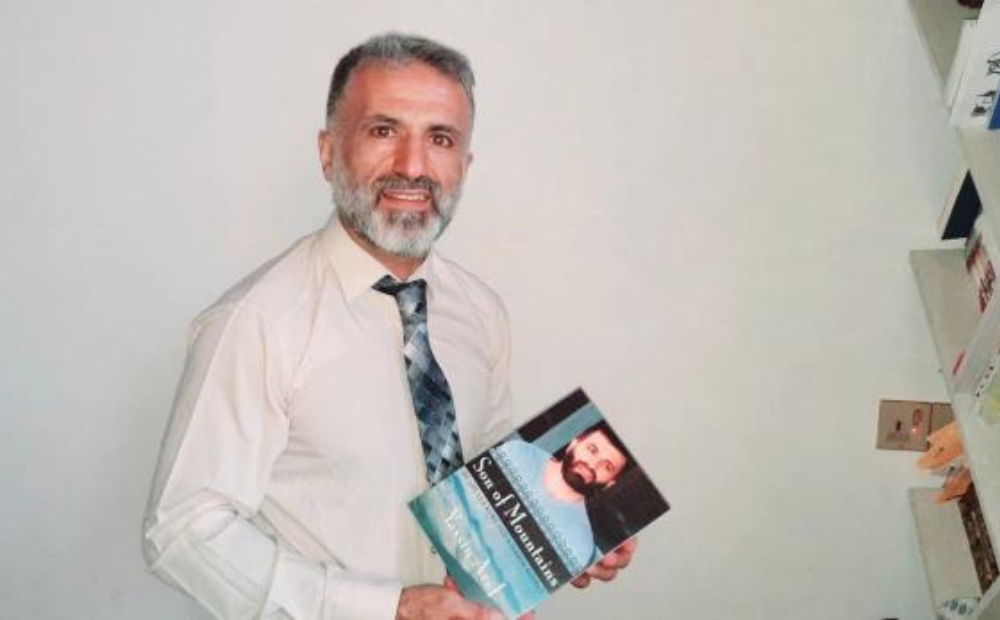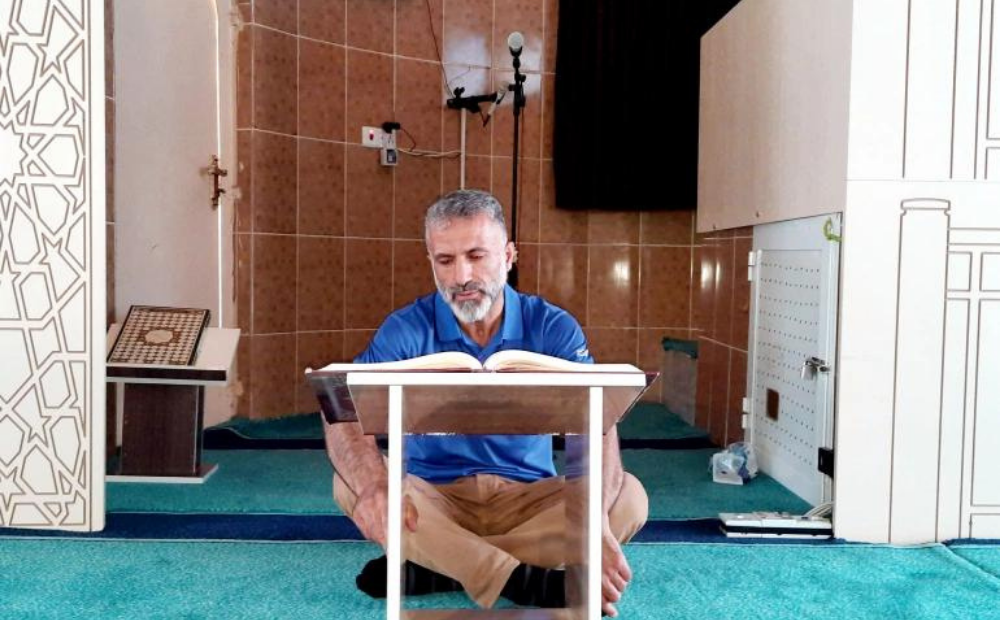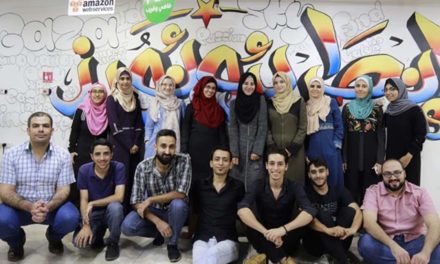Aref recites the Quran at his mosque in the Kurdish region of northern Iraq [Dana Taib Menmy/Al Jazeera]
Chamchamal, Kurdish region of northern Iraq – For Yassin M Aref, the 20th anniversary of the 9/11 attacks is a sad reminder of 15 lost years spent in American prisons.
Aref, 51, a Kurdish man and former mosque leader at the Masjid As-Salam in Albany, the capital of New York state, was arrested in 2004 on a conspiracy charge brought by the FBI in a “sting operation”. He was accused of aiding “terrorism” based on “secret” evidence.
His case drew criticism from the American Civil Liberties Union and other critics of post-9/11 counterterrorism policies in the United States.
Aref is a living victim of Islamophobia and hate speech following the September 11, 2001 attacks that killed nearly 3,000 people, which were later used as pretexts by the George W Bush administration for invading Afghanistan and Iraq.
As the world commemorates the 20th anniversary, this year is unique since the US and coalition forces have withdrawn from Afghanistan and are scheduled to leave Iraq by the end of this year – bringing an end to the “global war on terror“.
Aref was deported to the Kurdish region of northern Iraq in 2019 after his release. Al Jazeera spoke with Aref in his tiny house in Chamchamal district in the Garmian area, west of Sulaimaniyah province, in the Kurdish region of northern Iraq. Aref and his wife, Zuhur, live together while their four children, two boys and two girls, are studying in the US.
On July 2 he published his memories in Kurdish. The book is more than 1,000 pages and includes details of his arrest and his life in prison. Son of Mountains is his English version of the memoir that was published in the US in 2008.
“I was 34 years old when I was arrested and at 49 I left the prison. During those 15 years which I spent in jail, I lost all my goals in life including completing my PhD and building myself culturally and financially,” said Aref.

Yassin Aref with his book Son of Mountains [Dana Taib Menmy/Al Jazeera]
FBI ‘sting’
Aref was hired as leader of Masjid As-Salam a year after his arrival in the US. As an imam, he participated in several anti-war campaigns to protest the US-led invasion of Iraq in 2003.
“The FBI fabricated a sting to charge me … In court proceedings, there was no real proof against me,” said Aref. “The American intelligence could not arrest me for my political views or civilian activities, rather the FBI made a sting to arrest me on conspiracy charges.”
In June 2003, the American military found Aref’s name, Albany address, and phone number in a notebook written in Kurdish while raiding an enemy camp in Rawah, Iraq. That led the FBI to launch an investigation targeting him.
“The FBI initially claimed that the notebook included ‘commander’ next to my name, but I denied that and when a judge told the government to provide the notebook page, the FBI admitted that there was a mistranslation,” Aref said.
“The word in question was kak – which means brother and it is used as a common term of respect in Kurdish – and it does not mean commander.”
Aref said the Bush administration amplified his case for political gains when Deputy Attorney General James B Comey in a news conference in Washington, DC announced his arrest saying, “We have got the big fish.”
Aref said the FBI convinced an informant who was facing a long prison sentence and deportation for fraud to approach him through his friend, Mohammed Mosharref Hossain – a US citizen originally from Bangladesh and owner of a pizza shop in Albany.
The informant, known as Malik, secretly recorded his conversations with both men. He offered to loan $50,000 to Hossain and told him to launder money from the sale of a shoulder-fired missile.
A jury in US District Court in Albany found Aref and Hossain guilty in 2006 of money laundering and supporting terrorism, sentencing both men to 15 years in prison.
“I didn’t know about terrorism or terrorists or shooting or bombing. I knew about how many pounds of flour I used to make pizza,” Hossain told the judge after he was sentenced.
‘Little Gitmo’
Aref spent nearly two-and-a-half years in solitary confinement and several years at a maximum-security facility in Terre Haute, Indiana, nicknamed “Little Gitmo“.
“At Terre Haute, I have been subject to psychological torture … and this is contrary to US laws. Being too far, my family and children hardly could visit me. Even the family visits were a torture for me,” Aref said.
“I was not allowed to hug or kiss my kids. We had just a phone call on two sides of a thick plastic window. They used every technique to make you psychologically collapse.”
Aref said he is hopeful the “secret” evidence used by the FBI will be released at some point so he can prove his innocence.
“The injustices I suffered in the US washed out my views of the United States as a place for democracy and human rights,” he said.
“Since 9/11, the US has been in continuous retreat in terms of promoting democracy, human rights … The US has become morally bankrupt. I became the victim of wrong policies by Bush and the Islamophobia feelings in the aftermath of September 11.”
‘Generalized fear of Muslims’
Aref’s lawyer Kathy Manley also said there was no serious evidence against him.
“Yassin was definitely a victim of post-9/11 Islamophobia … He was convicted out of generalized fear of Muslims and because the judge told the jury the FBI had good reasons for targeting him,” Manley told Al Jazeera in an email.
“This was based on classified evidence we were not allowed to see, and later learned was false. His case was very high-profile and was used by the Bush administration in various ways … These sting cases do tend to be used for political purposes,” she said.
Ben Friedman, policy director of Washington, DC-based Defense Priorities, told Al Jazeera via Twitter: “US Islamophobia grew in leaps and bounds after September 11. And it has stayed at a high level as a result of politicians’ efforts, especially Trump’s, to use those fears to cast Muslims as a threatening other and win support for wars, immigration restrictions and other policies.”
Remarkably, Aref said he is not angry at the US despite his ordeal.
“Since my arrival to the Kurdistan region, I have become a defender of the US,” he said. “I do believe that still to some extent there is Islamophobia in the US, but no doubt compared to the time of my arrest the situation is changed and the environment is much better.”














